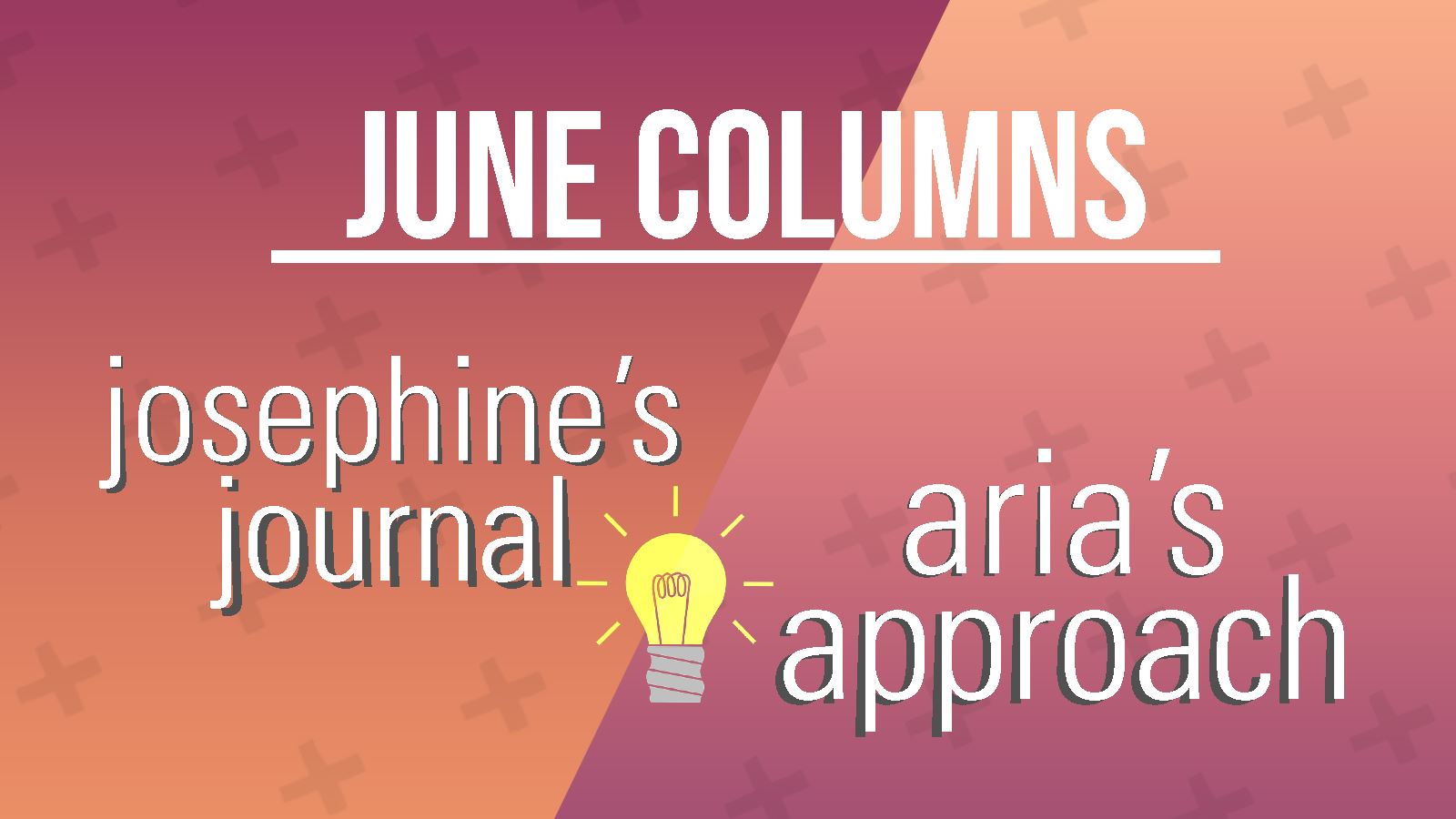By Opinion Editors Josephine Chew and Aria Lakhmani
Create your own novelty
Back in February, I mentioned to a friend that I felt slightly bored with everything — the predictable school routine, certain aspects of myself, even being an editor of the Smoke Signal. I’ve forgotten much of the conversation, but not her response to the last point:
“Well, you are in charge of leading the Opinion section. If your work feels boring, it’s probably because you’re setting it up to be boring.”
She was right — for instance, I could seek out more stimulating story ideas in order to feel more engaged in my editing — and her advice got me thinking about how I could spice up other aspects of my life as well. Like many of us, I have, at some point, gotten tired of nearly every activity I started out loving, whether it was writing, crafting, or music-making. Subsequently, I’d feel bad about myself — because “only boring people get bored,” right? But boredom is more of a sign that you need to shake things up than a reflection of your own character. And if you’ve tried everything, yet you’re still dragging your heels, then your boredom might be sending you a message: that what you’re doing isn’t fulfilling for you, and if possible, you should look elsewhere for something more engaging. More often than not, though, there’s a fresh way to spin your situation that will rekindle your enthusiasm.
Take the current shelter-in-place order — life might feel monotonous, but if we were to think hard enough, most of us would be able to come up with a few ways to make our days much more interesting while still adhering to social distancing guidelines. Excitement could come in any form; some of the projects that have pulled me out of weeks-long stretches of apathy are crafting gifts for people I appreciate, baking an ungodly number of desserts, and finding unique ways to celebrate friends’ birthdays from a distance. Even starting a new Netflix show under a genre that I’ve historically avoided has, to an extent, enlivened me. For those of us who are lucky enough that our most pressing problem is simply monotony, now is the perfect time to get creative.
The next time life starts to feel too humdrum, take some time to think before you complain that you’re bored. Challenge yourself to add your own flavor of spice, whether by talking to a friend to see things from a new angle, pursuing personal projects that invigorate you, or finding small ways to shake up your most ordinary tasks.
Dispose of Dichotomies
“Definitive personality type cannot be determined,” said the personality test. I couldn’t say I was surprised. The test had asked questions like “Are you logical or compassionate?” which made me wonder: how are those two traits exclusive? And more importantly, how could questions like this truly predict who I am and what career I should pursue? Personality tests often attempt to place people in neat, binarized boxes, which is representative of our flawed tendency to categorize people.
Tests like the Myer-Briggs Type Indicator (MBTI) present themselves as more sophisticated versions of Buzzfeed’s “Plan a wedding and we’ll tell you what type of potato chip you are!” However, there’s a core issue with these personality tests: their categories dichotomize traits that are independent, like logical and compassionate. By presenting limiting binaries with characteristics like extrovert versus introvert or thinking versus feeling, these tests split a whole spectrum of human personality right down the middle. In reality, the fluidity of personality makes it impossible to be shoved into a singular box. Furthermore, a study conducted by Marshall University shows that around 50 percent of people get a different personality type the second time they take the MBTI test, demonstrating that these tests are far from accurate and that personalities are fluid.
Despite how wildly inaccurate these tests are, we’re drawn to them. According to Live Science, around 1.5 million people take the MBTI test every year, and several consulting companies use the test in their hiring processes to create teams consisting of people with different “types.” Much of this is rooted in our drive to comprehend the abstract idea of personality, and in doing so, we inadvertently diminish the nuances of personality. This tendency to categorize isn’t limited to personality tests: it’s present in media tropes and stereotypes, which seem to dictate how certain people are supposed to look and act. However, it’s time we begin dismantling the idea of creating binaries and categorizing people. It’s harmful in that it not only limits the person, as they feel confined to what they’re “supposed to be,” but also other people’s view of the person, as others may see the person through the lens of a stereotype as well. This effect is magnified when these categories are used to predict future plans or career paths.
Next time you complete a personality test, take the results with a grain of salt. The personality type you’re ascribed to shouldn’t limit who you are or what you pursue. Let’s go beyond the neat boxes these tests force us into and forge our own, unique identities.
Graphic by Web Editor Gregory Wu


Be the first to comment on "June Columns: Josephine’s Journal & Aria’s Approach"